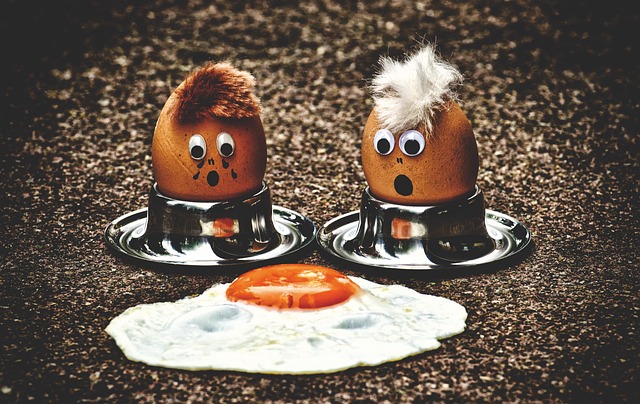Navigating IVF with egg donation involves understanding medical procedures, legal aspects, and emotional connections. By staying informed about treatment timelines, potential challenges, and success rates, recipients can prepare for physical and emotional journeys. Emotionally complex, this process requires support networks and therapy to manage feelings of sadness, anxiety, anger, and guilt. Recognizing donor generosity fosters gratitude, facilitating a smoother path to building families through egg donation for fertility treatment.
“Embarking on an IVF journey can be a complex and emotional process, especially for those considering egg donation. This comprehensive guide aims to demystify this path from a recipient’s perspective. We explore the intricacies of navigating IVF, delving into the role of egg donation in achieving fertility goals. Additionally, we discuss treatment timelines, expectations, and the emotional considerations that are integral to this life-changing decision. By understanding these aspects, individuals can make informed choices during their IVF journey.”
Navigating IVF: A Recipient's Perspective
Navigating the complex world of In Vitro Fertilization (IVF) can be an overwhelming experience for any recipient. It’s a journey that begins with hope and ends with either a successful pregnancy or the heartbreaking reality of another cycle. For many, egg donation is a crucial component of this process, offering a path to parenthood when traditional methods prove unsuccessful.
As a recipient, understanding your IVF treatment is essential. This involves grasping the ins and outs of egg donation, from the screening processes involved in selecting a donor to the emotional aspects of building a connection with someone whose genetic material will help create your family. It’s about being informed every step of the way, from medical procedures to legal considerations, ensuring you’re prepared for both the physical and emotional challenges that lie ahead.
The Role of Egg Donation in IVF
Infertility can be a complex and emotional journey, and for many individuals or couples, seeking assistance through IVF (In Vitro Fertilization) is a significant step. One aspect that often plays a crucial role in this process is egg donation for fertility treatment. This option has become increasingly popular, offering hope to those facing challenges related to ovulatory disorders, advanced maternal age, or genetic conditions.
When a woman chooses to donate her eggs, it becomes a valuable resource for individuals or couples who are unable to conceive using their own oocytes. The donated eggs are then fertilized with the partner’s sperm in a laboratory setting, creating embryos that can be transferred to the recipient’s uterus, potentially leading to successful pregnancy. This procedure not only enhances fertility chances but also allows recipients to experience the joy of building their families through a compassionate and selfless act.
Understanding Treatment Timelines and Expectations
Understanding the recipient’s IVF journey begins with comprehending treatment timelines and expectations. Fertility treatments, including in vitro fertilization (IVF), often require a series of steps that can span several months. This process involves egg retrieval from the donor, fertilization in a lab, and subsequent embryo transfer to the recipient’s uterus. Throughout this journey, it’s crucial to have clear communication with healthcare providers about timelines, potential challenges, and success rates associated with each stage, especially when considering egg donation for fertility treatment.
Recipients should be prepared for regular check-ins, monitoring, and potentially adjusting treatment plans based on individual responses. Understanding the typical IVF timeline helps in setting realistic expectations and managing emotional well-being. By staying informed about procedures, timelines, and outcomes, recipients can actively participate in their care and make informed decisions during this significant fertility journey.
Emotional Considerations for Egg Donation Recipients
Embarking on an IVF journey, especially as an egg donation recipient, is a delicate process laden with emotional considerations. Understanding and addressing these feelings are paramount to navigating this complex path successfully. The initial stages often involve grappling with personal emotions related to fertility challenges, which can range from sadness and anxiety to anger and guilt. These emotions stem from the desire for motherhood and the biological constraints that led them down this alternative route.
Supportive networks play a crucial role in managing these feelings. Many recipients find solace in sharing their experiences with partners, family, or support groups. Therapy or counselling can also be instrumental in processing emotions, providing tools to cope with anxiety and fostering resilience throughout the IVF process. Moreover, acknowledging and accepting that egg donation is a powerful act of generosity and selflessness can help shift perspectives, fostering gratitude for the donors who are making their journey possible.
Comprehending the intricate details of an IVF journey, particularly when involving egg donation, is paramount for ensuring a supportive and successful experience. By navigating the processes, understanding timelines, and addressing emotional aspects, potential recipients can make informed decisions regarding their fertility treatment. This comprehensive approach allows individuals to embrace the possibilities of egg donation for fertility treatment with confidence and hope.
